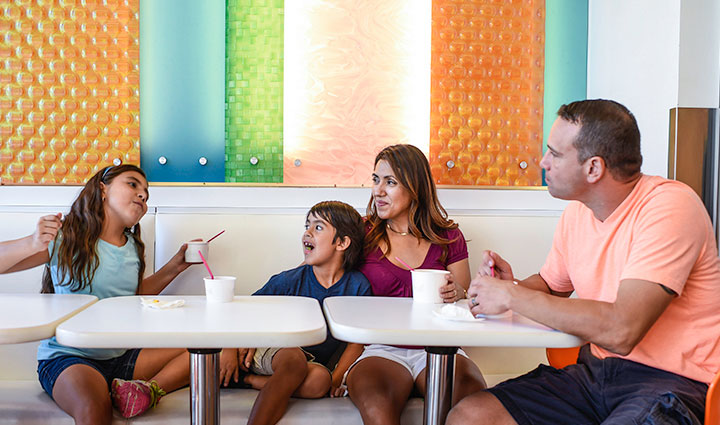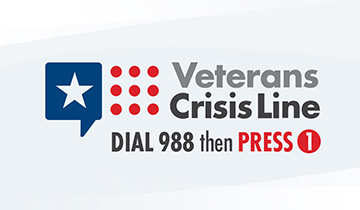Independence Program
Providing innovative, long-term support to the most catastrophically wounded veterans.
If you are a post-9/11 veteran or service member with a moderate to severe brain injury, spinal cord injury, or neurological condition that causes you to struggle with day-to-day living, Wounded Warrior Project® (WWP) can provide the kind of high-touch services that will help you live life to the fullest and as independently as possible. This one-of-a-kind program focuses on helping you set achievable goals, get more active in your community, and embrace the future on your terms. Whether you live with family, on your own, or in an assisted care facility, we’re dedicated to providing the support and resources that will empower you to lead a more fulfilling life.
Independence Program starts with a comprehensive service assessment, during which your team of specialists will work with you, your family, and your caregivers to develop a plan of action. From there, you will work with your dedicated team of specialists who are highly trained in helping injured veterans set and achieve goals.
Caregivers for severely injured warriors also benefit from the Independence Program, which provides innovative and ongoing support services to help them in their new, sometimes overwhelming roles.
Independence Program Success Stories
Hear from warriors and their caregivers about what brought them to Independence Program and how it has helped them live more fulfilling lives.
Tailored Services
Each program is customized to meet the unique needs of each veteran as well as their families and caregivers.
Warrior Support
Based on the individualized needs of the warrior they may receive some or all of the following at no cost:
- Comprehensive service assessment
- Individualized goal-setting
- Case management services
- Community support services — promote community reintegration and engagement
- Home health care — supplemental skilled and unskilled nursing care based on individual needs
- Physical health and wellness opportunities
- Alternative therapies — including art, music, and equine therapies
- Stress management and resiliency training
- Advocacy
- Long-term care planning and Continuous Care Services — free, professional services in estate and financial planning
- Virtual Independence Program — virtual opportunities for warriors and caregivers that include music, art, wellness, and skill-building workshops
Caregiver and Family Member Support
Based on the individualized needs of families and caregivers they may receive some or all of the following at no cost:
- Rosalynn Carter Institute for Caregiving family support programs:
- Operation Family Caregiver — coaches the families and friends of service members and veterans to manage difficult transitions
- Operation Caregiver Support — a virtual peer support group for those who provide care to post-9/11 service members and veterans, designed to foster connections, cultivate new skills, and create a community of support
- The American Red Cross Military and Veteran Caregiver Network — provides structured peer support to caregivers to increase their connection, engagement, knowledge, skills, and hope
- Connection to virtual or in-person therapists
- Respite and personal wellness care
Other Programs, Services, and Resources
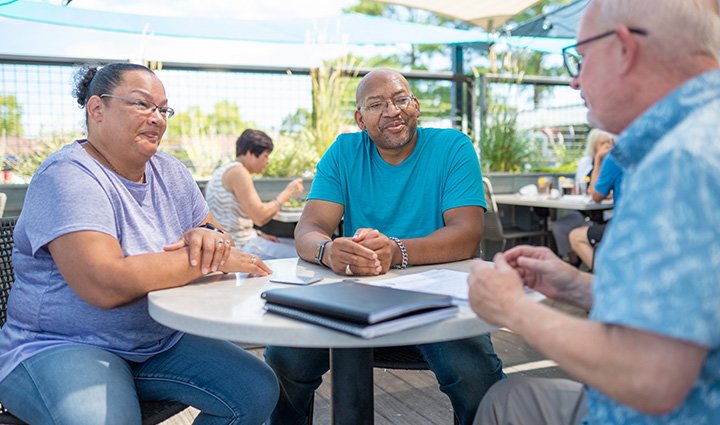
Continuous Care Services
Offered to provide peace of mind when it comes to an injured veteran’s long-term care. Prepare for the future with no-cost professional services in estate and financial planning and life-care to ensure that Independence Program warriors have the economic means to live as independently as possible.
WWP Alumni with a diagnosis of moderate to severe brain injury, spinal cord injury, or neurological condition or similar debilitating condition that severely impacts their ability to live independently. A thorough needs assessment will be conducted by our team of experts to determine if the Independence Program would be the right fit.
No. As long as you are a registered Alumni with WWP, your Independence Program qualifying diagnosis does not have to be service related.
No. Some of our Independence Program warriors do not have caregivers and/or are able to live in their homes independently with the right support services.
No, the Independence Program does not assign or provide caregivers. However, the program can provide services to foster veterans’ independent living.
Yes, our Continuous Care Services program assists warriors with creating long-term budgets, lifelong support plans, and estate plans, including wills, trusts, advanced directives, power of attorney, and the transfer or protection of assets.
Because every journey is different, there is no specific timeframe for participation. This veteran independent living program is designed to meet the specific needs of warriors and caregivers. Through active participation with our team, warriors’ individualized goals are achieved in their homes and communities.
The warrior can contact our WWP Resource Center to inquire about Independence Program eligibility. If you are your warrior's primary advocate, you may reach out on their behalf.
If you are not currently registered with WWP, please visit our registration page for details about eligibility and how to get started with registration. WWP supports veterans and service members who incurred a physical or mental injury, illness, or wound while serving in the military on or after September 11, 2001.
Independence Program, a veteran independent living program, is one of many veteran programs and services designed to help you take the steps that are right for you. Other programs include physical health and wellness, mental health and wellness, career transition, and support in obtaining benefits for disabled veterans from Veterans Affairs.
News And Articles About Veterans Like You
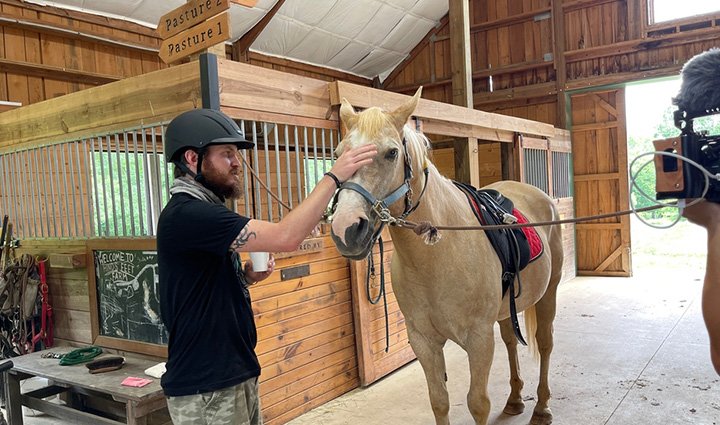
Wounded Warrior Project Helps Family Find Independence
Janice Huss didn't hesitate when she heard her son was hurt. She immediately made the nearly six-hour drive with her husband to be at Morgan's bedside 12 years ago. "As he started to wake up, we noticed he was not going to be his normal self," Janice said. The young Army veteran had suffered a heart attack and seizures because of a previously unknown medical condition. A lack of oxygen led to an anoxic brain injury.
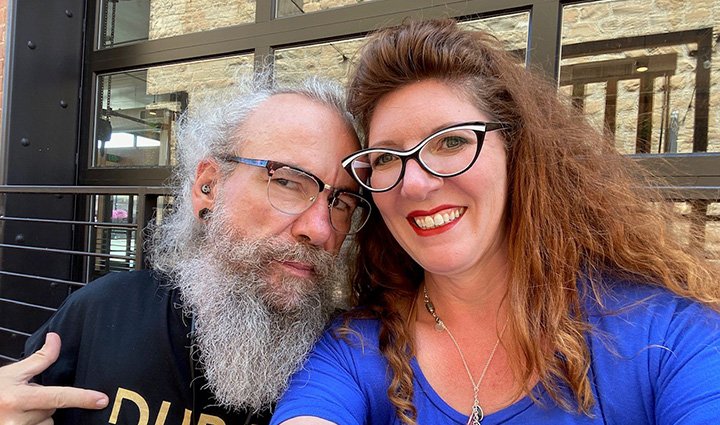
Wounded Warrior Project Helping Caregivers Cope with TBI Challenges
For Colleen Saffron, everyday life is anything but routine. Yet, it is the routine that her husband, Terry, relies on. Terry survived an explosion in Iraq 17 years ago. The blast ripped off part of his jaw and nearly cost Terry his right arm. A traumatic brain injury (TBI) Terry suffered in the explosion took years to diagnose. But Terry and Colleen both knew something was wrong. "He kept forgetting words," Colleen said. "I know this man, I was married to him for 15 years before he was wounded; it's not the same."
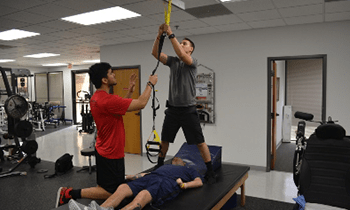
Unbreakable Bond: How Injury Didn’t Stop a Brother’s Love
Words of encouragement come easily for Cody Truman. The 26-year-old has spent more than a decade helping coax his older brother to take one more step or try responding to one more question. Cody’s brother, Andrew Larocca, sustained a traumatic brain injury (TBI) in 2010. The injury left Andrew paralyzed on the left side of his body and unable to speak. When Andrew was first injured, Cody, then 15, had questions.
